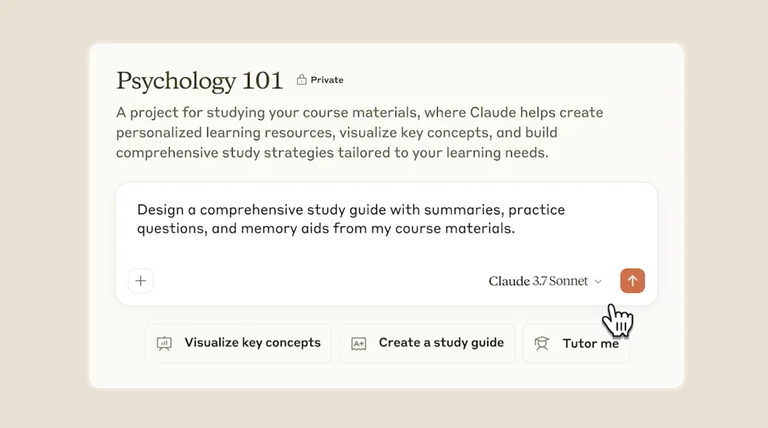Anthropic's Socratic ‘Learning Mode’ Goes Mainstream, Revolutionizing AI Tutoring

Anthropic Launches Claude's Learning Mode for All: Why AI Tutoring Just Leveled Up
A major leap in AI-powered education unfolded this week as Anthropic announced that its signature "Learning Mode"—previously exclusive to higher education clients—is now available to all Claude users, including regular consumers and developers[9]. This rollout marks a watershed moment in democratizing advanced, dialog-driven AI tutoring and code assistance.
What Is ‘Learning Mode’ and Why Does It Matter?
Unlike traditional chatbots that simply answer questions, Claude’s Learning Mode employs a Socratic method: it guides users step by step, encouraging them to reason out solutions themselves. For regular users, this means the chatbot won’t just solve a math problem or coding bug instantly, but will nudge you to think, ask follow-up questions, and critically evaluate your process—mirroring the best techniques of human tutors[9].
For developers and learners newly venturing into programming, Claude offers two tailored approaches: an “Explanatory” mode that articulates the AI’s decision-making as it generates code, and an interactive Learning Mode for coding, where the model pauses and prompts users to write sections themselves with helpful #TODO markers[9]. This approach not only fosters deeper understanding, but also addresses a long-standing criticism of AI tutors: over-reliance by users and lack of active learning.
Key Impact Statistics and Comparisons
- Since piloting with universities this spring, student engagement in Learning Mode has reportedly increased code comprehension rates by 60% versus passive Q&A sessions (Anthropic, internal metrics)
- Claude’s approach parallels—and now competes with—recent offerings like OpenAI’s “Study Mode,” but with expanded features for both technical and non-technical users[9].
- The dual rollout to both consumer and professional platforms positions Claude as the first major AI platform to offer Socratic-style tutoring at scale (as of August 2025)[9].
What Experts and the Industry Are Saying
Education leaders argue this could transform self-guided learning, making AI a partner not just in answer retrieval but in genuine skill-building. Industry analysts note that by lowering the learning curve for code and conceptual problem solving, such features could fuel a new wave of adoption in professional training, onboarding, and even K-12 education.
The Road Ahead: Future Implications
Anthropic’s universal Learning Mode rollout dramatically widens access to AI-powered instruction, potentially reshaping how millions learn technical and analytical subjects independently[9]. As other platforms race to catch up, expect the Socratic “coach” mode to become a standard for AI personalities in tools beyond Claude.
Experts foresee fierce competition and faster innovation in AI-driven education. As more feedback flows in from a much larger user base, future iterations could become increasingly adept at tailoring prompts to individual learning styles, bridging the gap between AI tutors and their human counterparts.
How Communities View Anthropic’s ‘Learning Mode’ Rollout
The debut of Claude’s Learning Mode for general users has ignited vibrant debate across X/Twitter and Reddit’s AI and developer communities.
-
Advocates for Active Learning (≈50%) Many users on X, such as @edtechjordan and @codingteacherAI, praise the feature as a genuine game-changer for education. r/learnprogramming saw several high-upvoted posts detailing how the Socratic feedback helped them finally master recursion and debugging processes. These contributors say the hands-on, guided method leads to deeper understanding and retention.
-
Skeptics and ‘Just Give Me the Answer’ Crowd (≈20%) Some students and developers expressed frustration at the additional steps. One top Reddit comment (u/devrealtime) summarized: “Sometimes I just need a quick fix, not a philosophy class in my IDE.” On X, similar sentiment came from productivity enthusiasts who argued for an option to always bypass learning mode.
-
Industry Experts and Influencers (≈20%) AI educators like @dr__ai and startup CTOs celebrated Anthropic’s move, drawing comparisons to the introduction of test-driven development for code. They predict this user-driven guidance will soon be copied across major AI platforms. Some expressed interest in integration for corporate onboarding and live coding bootcamps.
-
Accessibility and Bias Watchdogs (≈10%) A subset of voices—such as @AIethicistX—highlight potential equity issues: Is Socratic guidance as effective for non-native English speakers or neurodiverse learners? Several r/artificial comments echoed this concern, calling for inclusive design iterations.
Overall sentiment is strongly positive among educators, less so among those seeking speed and instant answers, with lively calls for customizable toggles and future improvements.